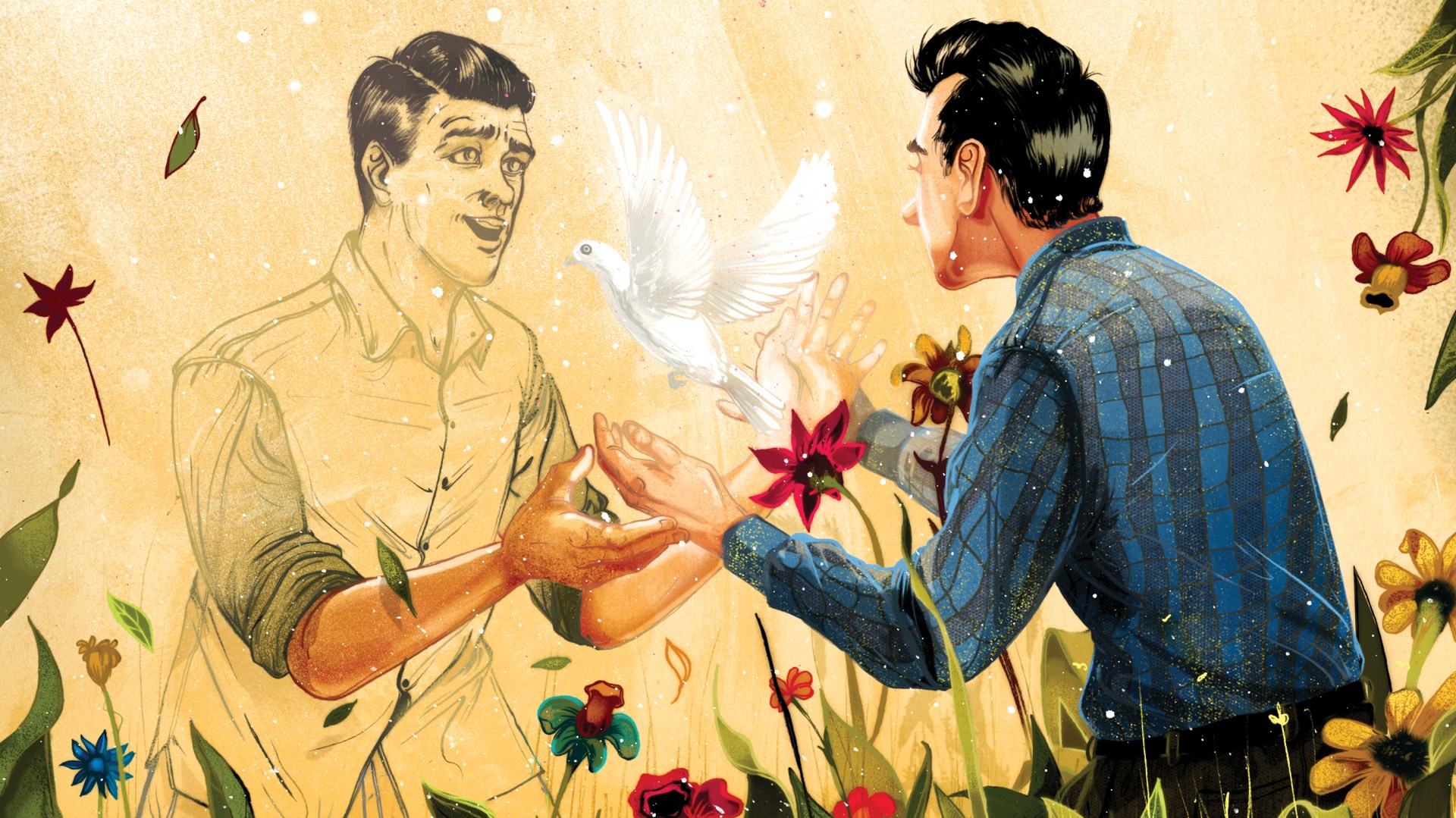The center of moral authority is shifting in Western culture. In the 20th century it shifted from clergy to psychiatrists, from Jonathan Edwards's followers to Freud's. Now the ground is shifting again, to neuroscientists, cognitive psychologists, and behavioral economists: the high priests of the brain. Try browsing any major news site without encountering a story about how our brains are primed for insider trading, serial monogamy, or Chipotle burritos.
The Social Animal: The Hidden Sources of Love, Character, and Achievement
Random House Books for Young Readers
448 pages
$6.00
These stories reflect real and remarkable progress. We understand more of the brain's biochemistry, the neurotransmitters and synapses that make it the most complex system known in the universe. Researchers have designed ever more clever experiments that tease out the complexities of human behavior. (Did you know that men who have just walked across a rickety bridge find a young woman more attractive than do men who have just been sitting on a bench?) The results have reaffirmed what the wise have always known: We know very little about ourselves—the habits and hunches that shape our choices before we know we are choosing. But can neuroscience offer insight into not just the way we are, but the way we ought to be?
To judge by The Social Animal: The Hidden Sources of Love, Character, and Achievement (Random House), David Brooks thinks so. Like Bobos in Paradise: The New Upper Class and How They Got There and Brooks's other forays into what he calls "comic sociology," this book is funny, frequently wise, and almost always spot on in its set pieces on the ways of cosmopolitan elites. But none of his past books were so packed with illuminating summaries of otherwise obscure and technical scientific findings, and none addressed so explicitly science's implications for "human flourishing"—a wonderful and resonant phrase that deserves wider attention.
Brooks believes earlier modernistic understandings of the good life have proven inadequate. For one thing, the "rational animal" of the Enlightenment is far less rational than it supposes. Emotion, peer pressure, past experience, stereotypes, and a thousand other hidden factors influence our reasoning. But in Brooks's telling, this is no great loss, because the good human life is less about thinking than relating. Our rationality comes and goes, but from conception to death we are social animals, thriving only when shaped by others: "Your unconscious wants to entangle you in the thick web of relations that are the essence of human flourishing."
And emotion, far from distorting reason, is actually a resource for reasoning, because emotion turns out to be an extraordinarily effective way to integrate and respond to complexity. "The human mind can be pragmatic," Brooks writes, "because deep down it is romantic." Without the guidance of our gut, we would be hopelessly overwhelmed with information.
A flourishing human being, then, is a relationally skilled, emotionally mature creature. This is a refreshingly holistic picture of the good life with which no Christian would disagree. We believe the very foundations of the cosmos are relational, that the world is the free outpouring of a triune God whose very being is love. It's no surprise that image bearers of a relational God would be hardwired for deep connections, right down to the "mirror neurons" that allow us to experience viscerally and directly what we see others experiencing. Nor should any Christian refuse the chastening discovery that we are mysteries to ourselves, susceptible to a range of unlovely subconscious motivations, and incapable—without discipline—of living virtuously and well.
Harold and Erica
Yet when Brooks tries to paint a normative picture, he falters. His scientific summaries are woven into a fictional coming-of-age story about Harold and Erica, two modern people who meet, marry, and contribute to society (though, perhaps tellingly, never have children). Harold is a scion of education and privilege; Erica is not—she is a half-Chinese, half-Hispanic child of a disempowered urban family. By narrating their infancy, childhood, courtship, marriage, careers, and old age, Brooks aims to show how neuroscience can illuminate a "story of love, character, and achievement."
But the story is odd at several points. First, despite Erica's childhood struggles, both partners are absurdly well-credentialed and accomplished. It would appear that human flourishing is helped along by an Ivy League degree and a stint at a major consulting firm. But the possibility of flourishing motorcycle mechanics or stay-at-home moms—let alone flourishing persons with cognitive disabilities or physical limitations—goes entirely unexplored.
Then there is Erica's brief fling with adultery, her only real moral failure. Erica's indiscretion could have been a catalyst of self-discovery and transformation, but in Brooks's story of upper-middle-class well-adjustment, it's a mere speed bump on the road to a warm, if not passionate, "companionate marriage." Certainly infidelity, like premarital sex, is not always a Category 5 emotional hurricane, especially for those with abundant social capital. Yet one senses no real indignation. What else would you expect from social animals, after all? Radical commitment just isn't in our nature. Brooks doesn't seem to consider whether the social arrangements that make us human might require precisely such radical commitments. Instead, he sets the moral bar comfortably low, right about where most NPR listeners could comfortably clear it on the first try.
Amazing Grace
This is definitely a story of achievement and, in certain limited respects, a story of the development of character. But it's hardly a story of love (Harold never discovers his wife's infidelity, so we never see how he would have responded to betrayal). It is clearly not a story of grace—not, at least, in the sense of a gift that arrives exactly at the point of our greatest loss and despair. Perhaps, borrowing from the Calvinist lexicon, we could call it a story of common grace—of provisional, everyday blessings, the sun that rises on the just and the unjust. It is certainly a story of good fortune, of good parenting, of well-honed temperaments and carefully measured risks (say, leaving a corporate job to start one's own firm)—but it is not a story of rescue. Indeed, the main characters, by dint of hard work and good luck, seem not to need any rescuing at all.
'This is the happiest story you've ever read,' reads Brooks's baffling first sentence. Surely he has his tongue in his comic-sociologist's cheek?
"This is the happiest story you've ever read," reads Brooks's baffling first sentence. Surely he has his tongue in his comic-sociologist's cheek? At most, you could call The Social Animal mildly happy, or happily mild. Yet authentic human stories—those we tell ourselves and our friends in unguarded moments—burn brighter. They feature precipitous drops and vertiginous triumphs. America's best loved hymn is about wretches—once lost, blind, and fearful—rescued by grace and overflowing with gratitude. Should we really be content with modulating our harmful instincts, guardedly cultivating helpful ones, and hoping for the modest fulfillments that middle-class prudence can deliver?
The old saw about the Hebrew word shalom is that it refers to more than the absence of conflict—it anticipates the full flowering of the created world and God's image bearers. No vision of shalom is complete without amazing grace—without a broken cosmos rescued and redeemed, oriented towards a final tableau of awed and grateful worship, bright shining as the love that moves the sun and the other stars. The reasonably fulfilling and well-remunerated lives of Harold and Erica seem to exemplify the truncated version of shalom. Certainly, a world where everyone enjoys such small graces would represent quite an improvement on the world we have. But without the world to come, it may be that human flourishing is a cruel mirage. We are no less than social animals, but to understand ourselves, let alone flourish, we must also grasp that we were made to be far more.
Andy Crouch is a CT editor at large and the author of Culture Making: Recovering Our Creative Calling (IVP).
Copyright © 2011 Christianity Today. Click for reprint information.
Related Elsewhere:
The Social Animal is available from Barnes & Noble and other book retailers.
Previous articles on David Brooks include:
Q+A: David Brooks | The conservativeNew York Timescolumnist explains how socially conservative evangelicals can repair their public image. (February 20, 2009)
The Dick Staub Interview: David Brooks | The Weekly Standard senior editor talks about the spiritual life of Bobos. (July 1, 2002)
Consider This: The Bobo Future | Bourgeois bohemians wield inordinate power over how we think about consumerism, morality—and faith itself. (July 25, 2000)
Previous reviews by Andy Crouch include:
Looking Over the Fence | New research suggests scientists are more like neighbors than enemies of the faith. Andy Crouch reviews 'Science vs. Religion.' (October 19, 2010)
Hunter and I Agree on Culture Making (He Just Seems Not to Know It) | Andy Crouch responds to James Davison Hunter's 'To Change the World'. (May 14, 2010)
Surprising Candor | Faith in the Halls of Powerprovides an intimate portrayal of a little-known side of the evangelical world. (November 16, 2007)
Christianity Today also has more book reviews.











